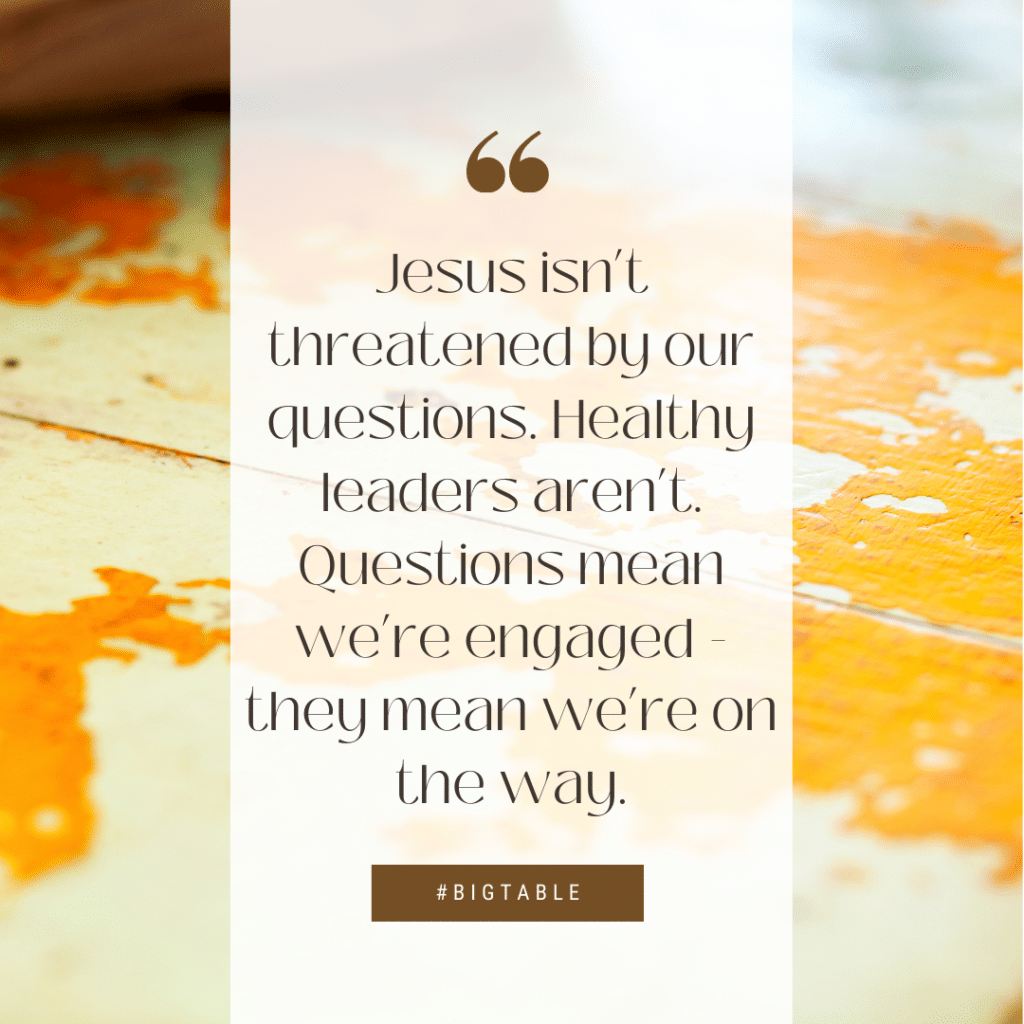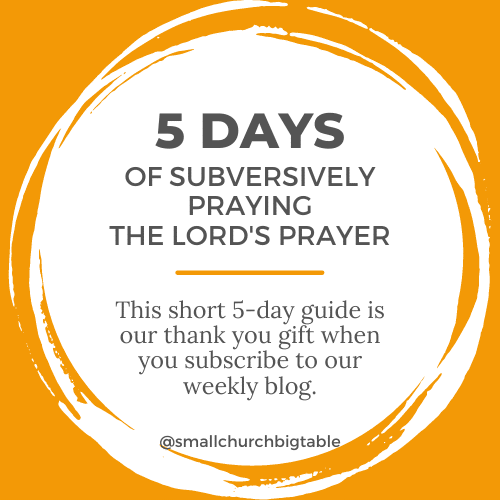It’s six years ago, and I (Brenna) am sitting around a lunch table with a group of female staff pastors. They begin to discuss whether or not they’d ever want to be lead or solo pastors. Absolutely not, the consensus runs. Not because they can’t (let’s be clear), but because what they’ve seen of lead pastorship is deeply unappealing. Emotionally unhealthy and isolating. Ego inflating and spiritually deadening. Lacking any semblance of balance between work and rest.
Fast forward to just a few weeks ago. Now I’m sitting in my living room with a friend considering church planting. Once again, despite (or perhaps because of) her obvious giftedness, her experience and maturity, the prospect makes her cringe. She has seen up close and personal the unrealistic expectations churches heap on their bivocational, supposedly part-time ministers, the wave – many would say – of the future church. But she has seen how the never-ending demands chip away at their families. She just doesn’t want to live that way, for herself or for her family.
These are stories of people pastoring or considering pastoring with real trepidation, and odds are, each person reading this could add two or three more. Now consider these stories alongside what’s already becoming old news, that roughly two out of every five ministers is considering walking away in the wake of the pandemic, and it’s clear – something has gone very wrong with leadership in the American church.
As Kyle Rohane points out, “Even if most of the 38 percent of pastors who considered quitting full-time ministry last year never actually leave, we should still ask why that number rose so quickly in 2021. Perhaps our greatest concern shouldn’t be empty pulpits, but rather empty pastors standing in them.”
Super-Human Expectations
It’s not really about the pandemic, of course. As Seattle pastor Peter Chin thoughtfully reflects in this month’s Sojourners:
“Pastors are often saddled with broad and unsustainable expectations: to teach, counsel, comfort, manage, catalyze, discipline, mop—you insert the verb, and there is someone in the church who expects the pastor to do it. The resignation of pastors isn’t just about the pandemic. It’s about an unhealthy paradigm of pastoring that predated the pandemic.”
And Pastor Chin’s list, expansive and unrealistic as it is – those are just the concrete job requirements!
Let’s Talk “Emotional Labor”
Now let’s talk about the unseen “emotional labor” expected of ministers, whether explicitly stated or not. (It’s actually amazing how often folks in churches feel free to say the quiet parts out loud.) This is where it really gets interesting – this is what my friends have been pointing to for years. You see, in so many churches, the “good” pastor:
- Excels at every aspect of the wide-ranging job: oozing wisdom and charisma from the pulpit, humility and willingness to listen one on one; vision and passion at the congregational meeting, business acumen and restraint with the accountant.
- Happily over-works while being under-paid, taking calls and texts at all hours and never worrying about their bills. (I mean, it’s not just a job, is it? Don’t you have faith?)
- Understands how to be just the right amount and kind of political; you don’t want to make anyone angry, especially “a church pillar.” (Who probably tithes generously – not that that’s the issue.)
- Carefully curates their “public persona” (see above: don’t make anyone angry) as answer person and people gatherer, however lonely or full of questions they may actually feel.
- In the midst of all of this, has an ideal, happy family and excellent mental health; of course they’d never need to see a therapist or take medication for anxiety or depression.
You might read this list and think, wow, pastors are expected to be super-human! Close, but not quite. They’re expected to be less than human – to bury their good, valid, creaturely needs under the weight of a superhuman role. But we’re actually not designed to live this way.
Refusing to Be Less than Fully Human
And so, more and more, current and potential pastors are refusing the traditional role. Some by the jobs they choose to take or to leave – others by how they insist on holding and re-shaping the role.
“I am no longer interested in being a ‘preacher,’” North Carolina pastor Melech Thomas writes, because “a true desire to be faithful to the Call requires the categorical rejection of anything that crushes the capacity of the minister to be their full, whole, authentic self.” He’s rejecting the culturally prescribed “preacher” box so that he can actually pursue his calling in the fullness, which is to say the healthy limitedness, of his unique and beloved humanity.
What might it look like to refuse to be less than fully human as a minister?
- We might start appropriately sharing and advocating for our needs: the basic, survival kind (time to rest, fair pay, adequate provision for us and our families) & some “thrive-al” needs, too, (beauty, joy, the occasional just-because nap, nice meal or vacation).
- Similarly, we’d refuse to pretend we don’t have problems, whether related to our families or friends, our mental, physical or spiritual health.
- We’d get to have areas of struggle, things we’re just not good at, AND
- We’d get to share those problems and struggles, to seek support in relationship, both the everyday sacred kind and the paid professional kind.
- Friends, we’d even get to be joyfully awkward and weird and uncurated – to have quirks and opinions and questions, our own unique personalities and perspectives that we get to share, not to dominate conversations, but to add to their richness and nuance.
In fact, it would look a lot like rest, like the “unforced rhythms of grace” Jesus urged us to learn as we walk with him (Mt 11:30, MSG). Rhythms of sabbath that invite us to remember we’re human and beloved, worthy of rest, sustenance, rescue, healing and love.
Rest that Ripples through Communities
So we’re going to talk more about rest here at Small Church Big Table. And yes, it’s because we’re concerned about pastors. It’s also because we’re concerned about the people they’re caught in this twisted feedback loop with, everyone in the community telling everyone else to try harder and harder and harder…
Someone has to be the first to name the truth, to refuse to play an unwinnable game – to risk the ways of grace. Maybe that someone is you.


